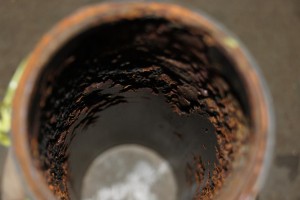Internal corrosion is the overall effects of fluid corrosivity, microbial activities and flow conditions. either single of these factors or their combination could contribute to the corrosion. In oil and gas industry, the internal corrosion may have serious safety implication since it may compromise the fluid and energy containment.
The following types of internal corrosion are often observed in oil and gas production.
- CO2 corrosion
- H2S corrosion
- Microbiologically influenced corrosion (MIC)
- Galvanic corrosion
- Oxygen corrosion
- Welding corrosion
- Erosion and cavitation
- Flow assisted corrosion
- Stress corrosion cracking
Internal corrosion is a major threat for oil and gas production. Managing internal corrosion is a primary objective for asset integrity management in oil and gas production.


I reckon something truly interesting about your blog so I saved to bookmarks.
“Hi my friend! I want to say that this article is amazing, nice written and include approximately all significant infos. I would like to see more posts like this.”
Very informative article post.Thanks Again. Will read on…
I appreciate you sharing this article. Great.
I loved your article. Keep writing.